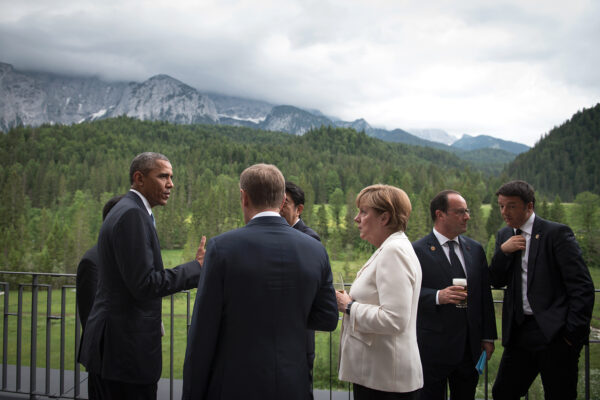
President Barack Obama reiterated a long-standing American complaint when he told The Atlantic recently, “Free riders aggravate me.”
Obama only obliquely referred to his European allies and also had Arab states in mind, but the idea that nations across the Atlantic are taking advantage of American largesse has become a familiar refrain.
Let’s recognize up front that there is more than a little truth to this sentiment. Europe has a larger population than America yet accounts for only a quarter of defense spending in NATO. Few countries spend the recommended 2 percent of their gross domestic product on defense whereas the American spend 4.5 percent of theirs on the military.
But there are also a few caveats to be made.
Threat perception
One is that the September 11, 2001 terrorist attacks exacerbated the imbalance in defense spending. The United States more than doubled military spending after the attacks on New York and Washington DC that year. Europe did not. Which goes to a second point.
Europe, until recently, did not face external security threats anymore. The collapse of the Soviet Union seemingly removed the need for a strong defense. America cut back on its military after the end of the Cold War; Europe cut further.
Now that the self-proclaimed Islamic State is spreading terror in Western Europe and Russia is subverting former satellites in the East, countries like France, Germany, Poland and the United Kingdom are restoring their armed forces. France is also leading counterinsurgency efforts in the Sahel. So the trend is going the other way.
Conditioned
A third point is one I made at the Swiss security blog Offiziere a couple years back, which is that, after World War II, America deliberately kept Europe’s armies dependent to prevent the continent positioning itself, as President Harry Truman’s secretary of state, Dean Acheson, put it, as a “third force or opposing force” in international relations.
President John F. Kennedy’s national security advisor, McGeorge Bundy, similarly argued that it would be preferable if Britain gave up its independent nuclear deterrent and accepted American protection. Kennedy’s and subsequent administrations were also apprehensive about Charles de Gaulle’s attempts to find an equidistant position for France between the Soviet Union and the United States.
Even after the Cold War did Bill Clinton’s secretary of state, Madeleine Albright, warn that a European security policy could only go forward if it meant “no diminution of NATO, no discrimination and no duplication.” President George W. Bush’s ambassador to NATO, R. Nicholas Burns, saw European security cooperation as “one of the greatest dangers to the transatlantic relationship.”
So there’s more than a little irony to Americans lamenting that Europe isn’t doing its bit. Their own government has for half a century conditioned a European dependence on the United States.
For good reasons. European militarism had drawn the United States into two continental wars during the first half of the twentieth century, after all, and a Europe more sympathetic to Russia during the second half would surely have disadvantaged the United States.
Both sides recognize the world has changed. Europe is starting to take more responsibility for security in its neighborhood while America is pivoting east. Time for the free-rider argument to go away.
